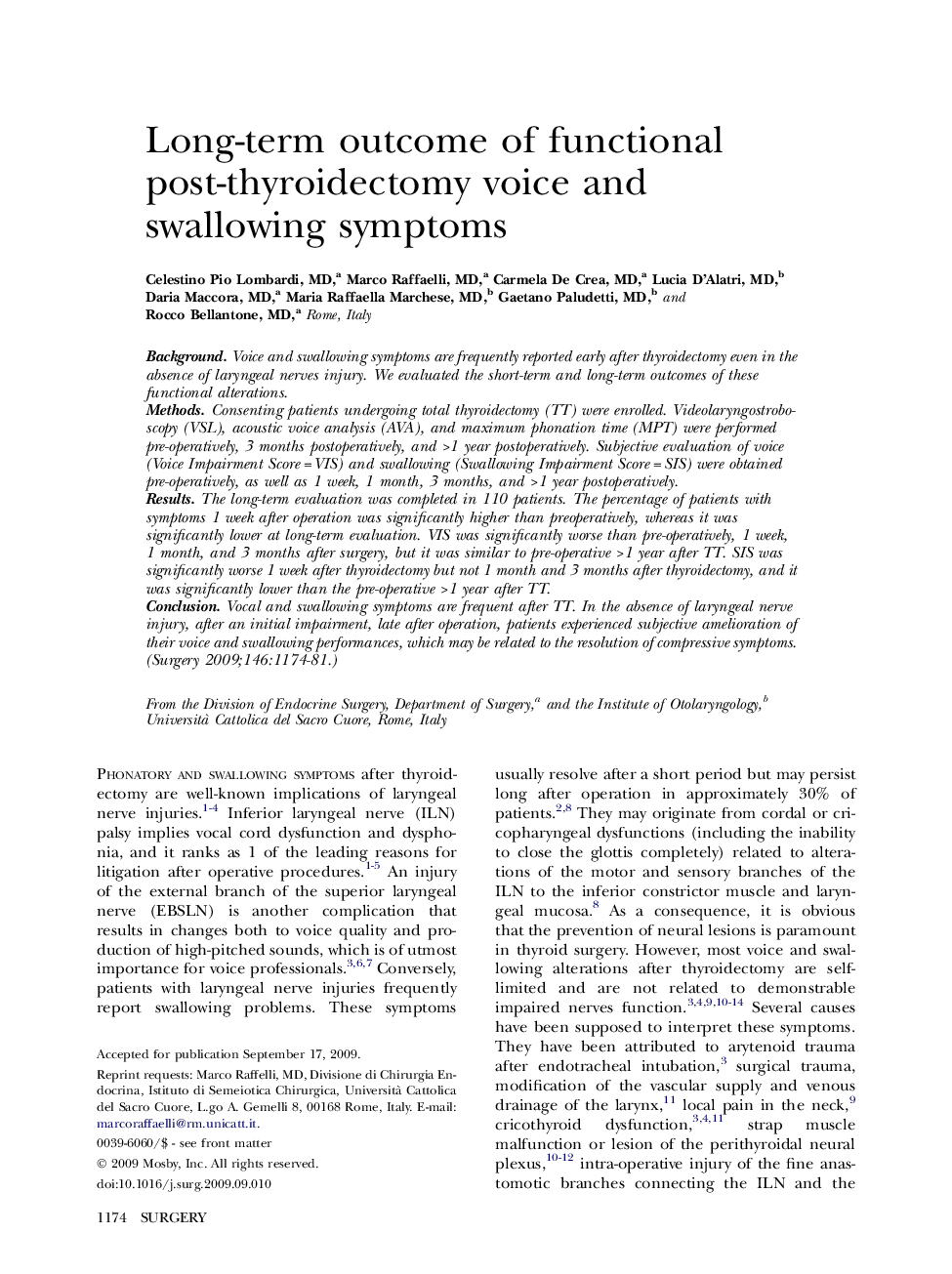| Article ID | Journal | Published Year | Pages | File Type |
|---|---|---|---|---|
| 4309121 | Surgery | 2009 | 8 Pages |
BackgroundVoice and swallowing symptoms are frequently reported early after thyroidectomy even in the absence of laryngeal nerves injury. We evaluated the short-term and long-term outcomes of these functional alterations.MethodsConsenting patients undergoing total thyroidectomy (TT) were enrolled. Videolaryngostroboscopy (VSL), acoustic voice analysis (AVA), and maximum phonation time (MPT) were performed pre-operatively, 3 months postoperatively, and >1 year postoperatively. Subjective evaluation of voice (Voice Impairment Score = VIS) and swallowing (Swallowing Impairment Score = SIS) were obtained pre-operatively, as well as 1 week, 1 month, 3 months, and >1 year postoperatively.ResultsThe long-term evaluation was completed in 110 patients. The percentage of patients with symptoms 1 week after operation was significantly higher than preoperatively, whereas it was significantly lower at long-term evaluation. VIS was significantly worse than pre-operatively, 1 week, 1 month, and 3 months after surgery, but it was similar to pre-operative >1 year after TT. SIS was significantly worse 1 week after thyroidectomy but not 1 month and 3 months after thyroidectomy, and it was significantly lower than the pre-operative >1 year after TT.ConclusionVocal and swallowing symptoms are frequent after TT. In the absence of laryngeal nerve injury, after an initial impairment, late after operation, patients experienced subjective amelioration of their voice and swallowing performances, which may be related to the resolution of compressive symptoms.
